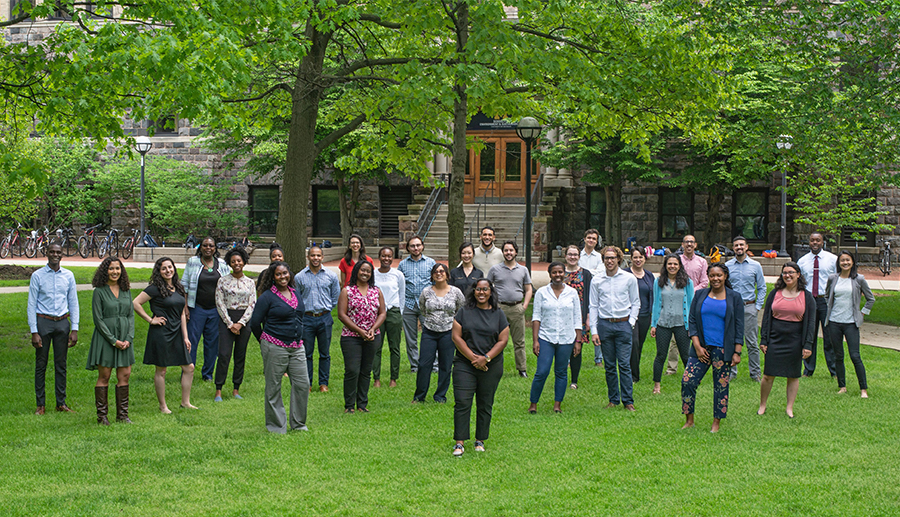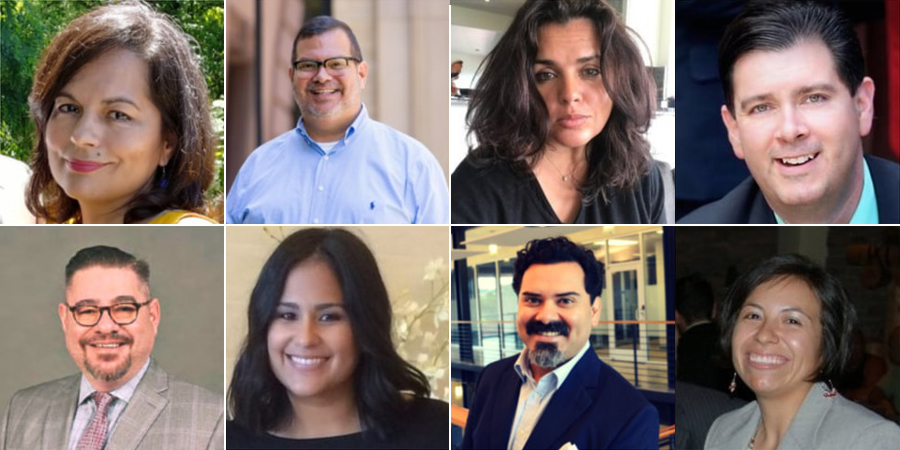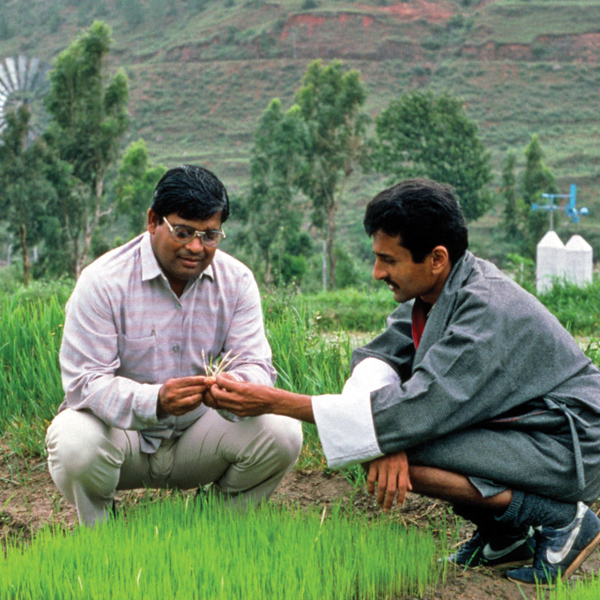Claire Poelking, Program Officer, shares some of MacArthur’s partnerships that work to advance diversity, equity, and inclusion in philanthropy and the nonprofit sector.
Philanthropy has been accused of being a lot of things: too establishment, too siloed, too intolerant of risk, too opaque, too White.
All valid.
These statements are not just anecdotally true, they have been researched and reported on by many of our grantee partners. MacArthur’s Philanthropy Field Support program makes a number of grants that support ‘critics’—organizations that call us out and keep us honest. Beyond supporting our critical friends, the Philanthropy program, with a budget of about $1.5 million annually, strives to strengthen our vibrant philanthropic and nonprofit sector, keep us connected to colleagues and best practices, and seed new and emerging opportunities. Periodically, the Philanthropy program allocates a portion of the portfolio to focus on particular themes.
In recent years, the portfolio has been more intentional about supporting efforts to advance diversity, equity, and inclusion (DEI) in the sector. With our faults in plain view, our Foundation values to guide us, and our goal to seed new opportunities in support of DEI, we got to work.
Developing Philanthropic Pipelines
First, we decided to chip away at the explanation (excuse) that the lack of diversity in the sector is due to a shortage of qualified candidates. Our Climate Solutions program introduced us to the Environmental Fellows Program, a national summer program that seeks to diversify the environmental philanthropic and nonprofit sectors by supporting the career aspirations of graduate students from traditionally underrepresented populations through paid fellowships, professional development, networking, and diversity training. We funded and hosted our first Environmental Fellow in 2021 and are hosting our second fellow this summer.

2018 Environmental Fellows Program cohort.
Our Evaluations Department brought us a proposal from our colleagues at the Chicago Community Trust for a new initiative called Pathways, a program that aims to strengthen the diversity of the evaluation field by increasing the recruitment and retention of culturally responsive and equity-focused evaluators. Pathways encourages undergraduate students of color from Chicago-area universities to think about a career in evaluation—a field usually encountered in post-graduate education. And through curriculum, professional development, and paid internships, students are introduced to a professional career pathway and trained in culturally responsive and equity-focused practices.
RespectAbility approached us with the idea to expand its National Leadership Program to include Philanthropy Fellows, a new program that aims to create a strong talent pipeline of people with disabilities for the philanthropic sector. Like its peers in the portfolio, the Philanthropy Fellows receive training, a paid fellowship, and participate in diversity, equity, and inclusion training, which encourages fellows to be authentic self-advocates who can confidently bring their full selves to work. RespectAbility’s Philanthropy Fellows serve as positive role models to help reduce the stigma and unconscious biases that often prevent the inclusion of people with disabilities from entering or succeeding in the work force.
Supporting the Grassroots
We heard the call to fund more grassroots organizations whose leadership and staff better represent the communities they seek to serve—organizations that may have evolved from intersectional social movements led by young people unfamiliar with organizational governance (both informal and formal), fundraising, and data and infrastructure.
Then, we literally heard the call when Kafele Thomas, Founder and Executive Director of the Atlas Center for Nonprofits, introduced himself and his organization. Since 2018, Atlas has partnered with innovative grassroots and social justice organizations covering a breadth of critical issues to help the organizations develop responsible fundraising strategies and to provide lasting frameworks for implementing policies that achieve equity, sustainability, and staff empowerment. The Atlas website shares its values and attention to equity:
Atlas believes that organizations are not only meant to be accountable to constituent need but should have the role of voice amplification. Nonprofit organizations must listen and be led by the communities that they serve. This means that community voice and community power should flow within the organization at all levels. Atlas works with our partners to proactively create policies that will ensure that people from the constituency being served are represented and actively empowered at all levels of power within the organizations.
We also watched as donations from private citizens poured into civil society and social service organizations around the country in response to the COVID-19 pandemic. Professional philanthropy is not the only—or even close to the leading—source of funding for nonprofits, especially organizations that are small, local, and provide services to a specific community.

The Somos El Poder Board.
With this in mind, we were excited to meet Armando Zumaya and learn of his idea for Somos El Poder (SEP), a national fundraising institute that is dedicated to improving and growing the fundraising capacity of Latinx-focused nonprofits through professional development, training, and organizational growth. They work not only to raise more money and in new ways but to gain confidence in their abilities and empower their organizations. Most professional development in fundraising is designed for large-budget institutions with complex fundraising programs and large staffs. There is little culturally informed fundraising training for Latinx focused nonprofits, so SEP focuses on practices that are feasible given time, budget, and staffing challenges faced by many Latinx-led and -serving nonprofits to create powerful change and advance a culture of develpoment that includes fundraising from federal, community, and, perhaps most notably, individual giving.
These are just a few examples of new partnerships the Philanthropy program supports in an effort to improve ourselves and our sector.



